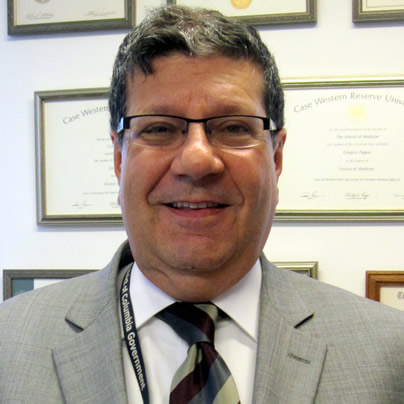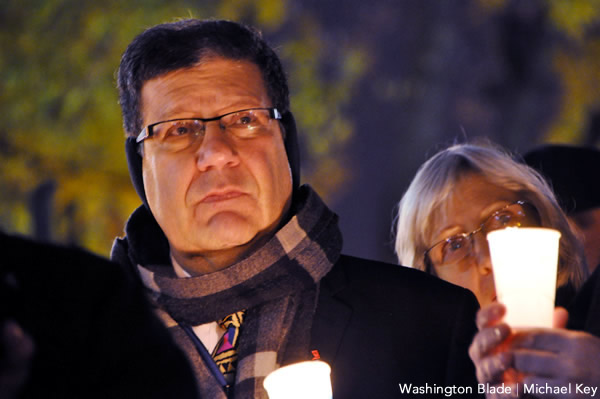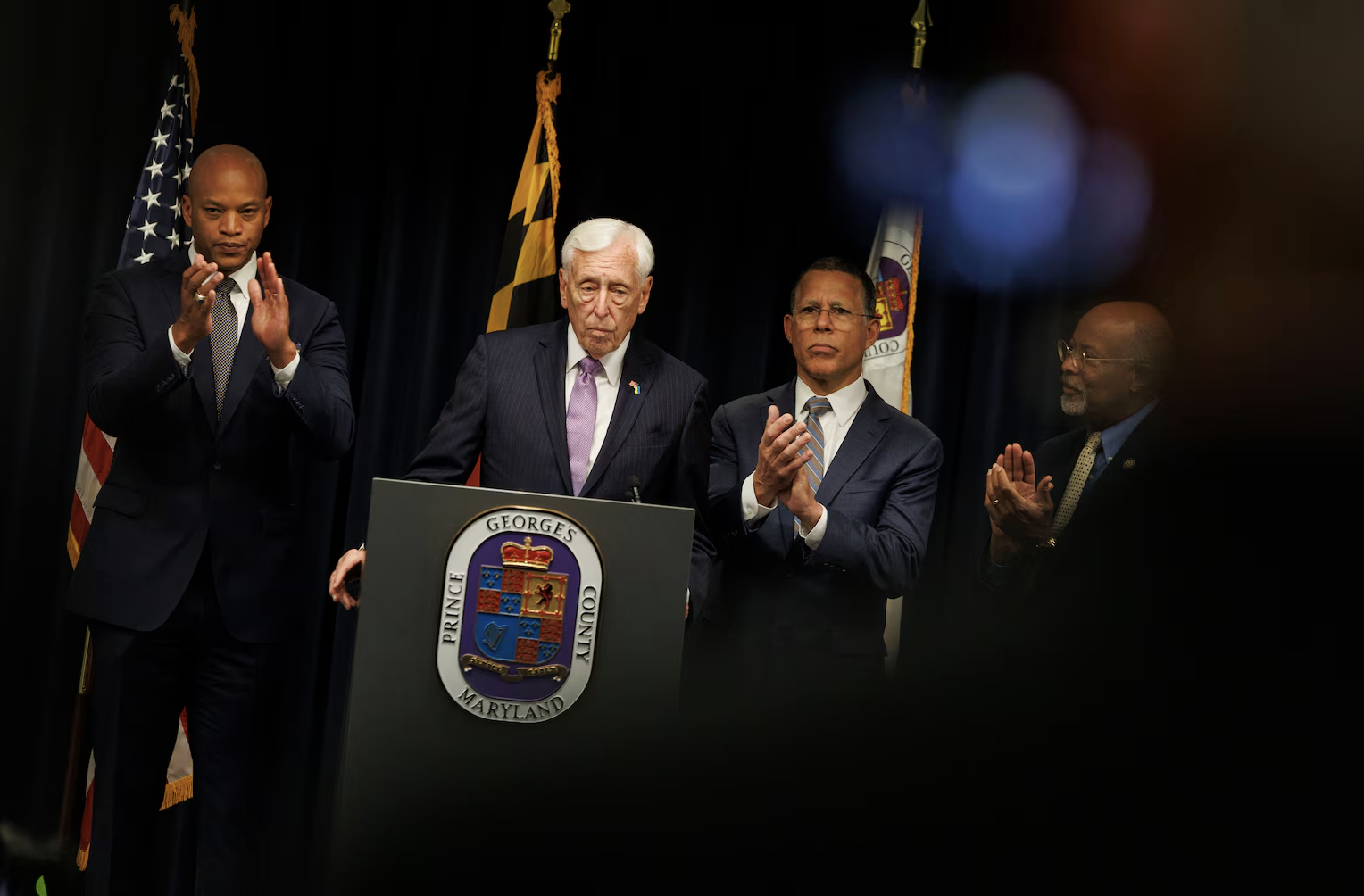Local
Pappas ‘steps down’ as head of DC AIDS office
Move comes 2 days before new health director set to take office


‘It has been a great honor to serve the District of Columbia,’ Gregory Pappas said in a statement. (Washington Blade photo by Michael Key)
Gay physician and AIDS specialist Gregory Pappas released a statement Tuesday night saying he was “stepping down” as head of the D.C. Department of Health’s HIV/AIDS, Hepatitis, STD and Tuberculosis Administration (HAHSTA).
Pappas sent the statement to the Blade, which he said he prepared with the help of his attorney, hours after DOH Interim Director Shaun Snyder announced Pappas’s abrupt departure in an email sent to DOH employees
The announcement came two days before Dr. Joxel Garcia, Mayor Vincent Gray’s nominee to become the new DOH director, is scheduled to take office as acting director on Aug. 1. The City Council was expected to vote on whether to confirm Garcia’s nomination in September when the Council returns from its summer recess.
“The purpose of this email is to inform you of a change in the management of the HIV, AIDS Hepatitis, STD, and TB Administration,” Snyder said in his email, a copy of which was obtained by the Washington Blade.
“Today is Dr. Gregory Pappas’s last day with the Department of Health and I would like to take this opportunity to thank him for his service,” Snyder said without giving a reason for Pappas’s departure.
Snyder then announced in his email to surprised employees that gay DOH official Michael Kharfen would replace Pappas as the HAHSTA director effective immediately.
“As many of you know, Mr. Kharfen currently serves as the Bureau Chief of Partnerships, Capacity Building & Community Outreach and has recently stepped up to serve as the Interim Bureau Chief of STD and TB Control,” Snyder said in his email.
“He is a committed public health official and I know he will provide solid leadership during this transition period,” he said. “Mr. Kharfen’s efforts, along with those of the dedicated HAHSTA team, will ensure that we promote the highest quality services for our client and patients.”
In an email sent to the Blade, Snyder added, “We do not anticipate any impact on services as a result of the transition.”
Pappas, reached by phone Tuesday night, declined to comment on his unexpected departure as HAHSTA director, saying he preferred to discuss the matter in his written statement.
Two sources from community-based AIDS organizations that are familiar with HAHSTA and who spoke on condition that they not be identified, told the Blade Pappas made informal arrangements to meet with representatives of the groups over the next few weeks and made no mention that he would be leaving HAHSTA. The two sources believe Pappas was dismissed.
“It has been a great honor to serve the District of Columbia,” he said in his statement. “During my time at HAHSTA I had the once in a life time opportunity to represent the city at the 2012 International AIDS Society Meeting,” which was held in D.C.
He discusses in the statement what he believes were his accomplishments in helping advance the city’s fight against AIDS, including the reduction of new AIDS diagnoses by 50 percent over the past five years.
“For public heath, team work is essential,” his statement says. “In stepping down I welcome the new director of the Department of Health, Dr. Joxel Garcia, who will assemble his own team. I wish him well in taking D.C. to the next level of excellence and recognition. I look forward to being able to spend more time with my family.”
Earlier in the day on Tuesday, DOH spokesperson Najma Roberts told the Blade she couldn’t say why Pappas left his job without any advance notice or who made the decision to replace him if his departure was involuntary.
“It’s really a personnel matter and I really don’t have the exact details,” she said. “But Michael Kharfen will be the interim director as of today. DOH is moving forward and we’re really excited about having him on board.”
Kharfen is a familiar figure to local AIDS activists, who have had dealings with him in his various roles at the DOH and HAHSTA for close to 10 years.
“It’s been a somewhat eventful day,” he said in a brief telephone interview on Tuesday.
Asked if he knew the reason for Pappas’s sudden departure, Kharfen said, “I don’t really know about that. I just know that I’ve been asked to step in in the interim. I’m looking forward to continuing the work with the management team here, and with the support and confidence of the director’s office and the administration to keep our focus on our work around reducing HIV, STDs, hepatitis and TB.”
Mayor Gray named Pappas as head of HAHSTA in February 2011. Pappas held a wide range of AIDS and public health-related positions over the 25 years prior to his joining HAHSTA, including a post as adviser to U.S. Surgeon General David Satcher during the Clinton administration. He also served as medical adviser in a consulting capacity for the now defunct National Association of People With AIDS.
Whitman-Walker Health executive director Donald Blanchon said he looks forward to working with Kharfen in his new role as interim HAHSTA director.
“We are grateful for Dr. Pappas’ contributions in D.C.’s fight against HIV/AIDS, especially his work to prepare the HIV care community for health care reform,” Blanchon said in a statement to the Blade. “Yet we all know that this fight is bigger than any one individual or organization. Today there are nearly 15,000 D.C. residents who need ongoing health care and support in the face of HIV/AIDS. And, each year, another 800 individuals are newly diagnosed with HIV. That is why I am confident that the mayor will find a new leader who can continue the progress that our community has made over the past five years.”
Below is the full text of Dr. Gregory Pappas’s statement released on July 30:
“It has been a great honor to serve the District of Columbia. During my time at HAHSTA I had the once in a life time opportunity to represent the city at the 2012 International AIDS Society Meeting. Through that meeting I believe we were able to set the record straight that D.C. has one of the most successful and creative city programs fighting the virus.
“D.C. is turning the tide with new diagnoses of HIV being cut in half over the past five years. Disparities persist but they too are decreasing. Our success is due to a rapid scale up of the National HIV/AIDS Strategy with the excellent providers in the city and a supportive community.
“For public health, team work is essential. In stepping down I welcome the new Director of the Department of Health, Dr. Joxel Garcia, who will assemble his own team. I wish him well in taking D.C. to the next level of excellence and recognition. I look forward to being able to spend more time with my family.”
Virginia
Gay Va. State Sen. Ebbin resigns for role in Spanberger administration
Veteran lawmaker will step down in February

Alexandria Democrat Adam Ebbin, who has served as an openly gay member of the Virginia Legislature since 2004, announced on Jan. 7 that he is resigning from his seat in the State Senate to take a job in the administration of Gov.-Elect Abigail Spanberger.
Since 2012, Ebbin has been a member of the Virginia Senate for the 39th District representing parts of Alexandria, Arlington, and Fairfax counties. He served in the Virginia House of Delegates representing Alexandria from 2004 to 2012, becoming the state’s first out gay lawmaker.
His announcement says he submitted his resignation from his Senate position effective Feb. 18 to join the Spanberger administration as a senior adviser at the Virginia Cannabis Control Authority.
“I’m grateful to have the benefit of Senator Ebbin’s policy expertise continuing to serve the people of Virginia, and I look forward to working with him to prioritize public safety and public health,” Spanberger said in Ebbin’s announcement statement.
She was referring to the lead role Ebbin has played in the Virginia Legislature’s approval in 2020 of legislation decriminalizing marijuana and the subsequent approval in 2021of a bill legalizing recreational use and possession of marijuana for adults 21 years of age and older. But the Virginia Legislature has yet to pass legislation facilitating the retail sale of marijuana for recreational use and limits sales to purchases at licensed medical marijuana dispensaries.
“I share Governor-elect Spanberger’s goal that adults 21 and over who choose to use cannabis, and those who use it for medical treatment, have access to a well-tested, accurately labeled product, free from contamination,” Ebbin said in his statement. “2026 is the year we will move cannabis sales off the street corner and behind the age-verified counter,” he said.
Maryland
Steny Hoyer, the longest-serving House Democrat, to retire from Congress
Md. congressman served for years in party leadership

By ASSOCIATED PRESS and LISA MASCARO | Rep. Steny Hoyer of Maryland, the longest-serving Democrat in Congress and once a rival to become House speaker, will announce Thursday he is set to retire at the end of his term.
Hoyer, who served for years in party leadership and helped steer Democrats through some of their most significant legislative victories, is set to deliver a House floor speech about his decision, according to a person familiar with the situation and granted anonymity to discuss it.
“Tune in,” Hoyer said on social media. He confirmed his retirement plans in an interview with the Washington Post.
The rest of this article can be found on the Baltimore Banner’s website.
District of Columbia
Kennedy Center renaming triggers backlash
Artists who cancel shows threatened; calls for funding boycott grow

Efforts to rename the Kennedy Center to add President Trump’s name to the D.C. arts institution continue to spark backlash.
A new petition from Qommittee , a national network of drag artists and allies led by survivors of hate crimes, calls on Kennedy Center donors to suspend funding to the center until “artistic independence is restored, and to redirect support to banned or censored artists.”
“While Trump won’t back down, the donors who contribute nearly $100 million annually to the Kennedy Center can afford to take a stand,” the petition reads. “Money talks. When donors fund censorship, they don’t just harm one institution – they tell marginalized communities their stories don’t deserve to be told.”
The petition can be found here.
Meanwhile, a decision by several prominent musicians and jazz performers to cancel their shows at the recently renamed Trump-Kennedy Center in D.C. planned for Christmas Eve and New Year’s Eve has drawn the ire of the Center’s president, Richard Grenell.
Grenell, a gay supporter of President Donald Trump who served as U.S. ambassador to Germany during Trump’s first term as president, was named Kennedy Center president last year by its board of directors that had been appointed by Trump.
Last month the board voted to change the official name of the center from the John F. Kennedy Memorial Center For The Performing Arts to the Donald J. Trump And The John F. Kennedy Memorial Center For The Performing Arts. The revised name has been installed on the outside wall of the center’s building but is not official because any name change would require congressional action.
According to a report by the New York Times, Grenell informed jazz musician Chuck Redd, who cancelled a 2025 Christmas Eve concert that he has hosted at the Kennedy Center for nearly 20 years in response to the name change, that Grenell planned to arrange for the center to file a lawsuit against him for the cancellation.
“Your decision to withdraw at the last moment — explicitly in response to the Center’s recent renaming, which honors President Trump’s extraordinary efforts to save this national treasure — is classic intolerance and very costly to a non-profit arts institution,” the Times quoted Grenell as saying in a letter to Redd.
“This is your official notice that we will seek $1 million in damages from you for this political stunt,” the Times quoted Grenell’s letter as saying.
A spokesperson for the Trump-Kennedy Center did not immediately respond to an inquiry from the Washington Blade asking if the center still planned to file that lawsuit and whether it planned to file suits against some of the other musicians who recently cancelled their performances following the name change.
In a follow-up story published on Dec. 29, the New York Times reported that a prominent jazz ensemble and a New York dance company had canceled performances scheduled to take place on New Year’s Eve at the Kennedy Center.
The Times reported the jazz ensemble called The Cookers did not give a reason for the cancellation in a statement it released, but its drummer, Billy Hart, told the Times the center’s name change “evidently” played a role in the decision to cancel the performance.
Grenell released a statement on Dec. 29 calling these and other performers who cancelled their shows “far left political activists” who he said had been booked by the Kennedy Center’s previous leadership.
“Boycotting the arts to show you support the arts is a form of derangement syndrome,” the Times quoted him as saying in his statement.


















